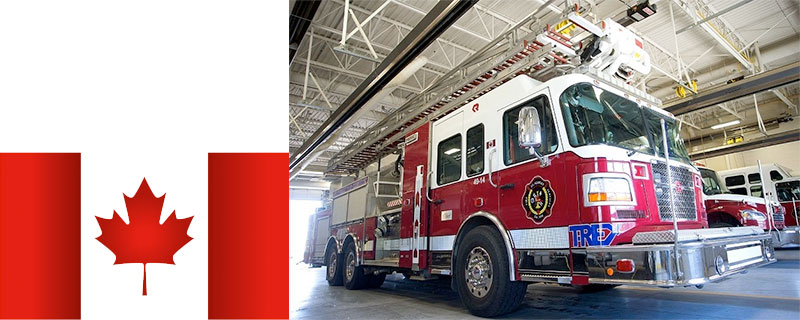Canadian Fire Station Rejects Modular Construction
St. Albert city council has decided to spend an extra $3 million on a new fire station that will now be built conventionally, instead of the modular building style council agreed on in late 2022.
The new fire station, the city’s fourth, will be built on the northwest corner of the St. Albert Trail and Neil Ross Road intersection.
Council approved a $26.5 million borrowing bylaw for the project 2021. The project’s initial budget only set aside $250,000 to service the land, and in fall 2022 administration told council the funds needed for servicing was closer to $2.2 million. To stay within the budget, administration proposed the new two-bay fire station be a modular building.
Modular — or prefabricated — buildings are built off-site, then transported and set in place.
On Jan. 23, Coun. Mike Killick put forward a motion directing administration to move forward with a conventional construction style for Fire Hall No. 4, and his motion passed, with Mayor Cathy Heron, Coun. Shelley Biermanski, and Coun. Natalie Joly opposed.
“When I look at the extra $3 million over the 20-year borrowing bylaw or 40-year life of that building, to get it right the first time is what I want to do,” Killick said in an interview. “My belief is that firefighters provide a real beneficial service … and they live at that fire station. It operates 24 hours a day, seven days a week, 365 days a year … and we deserve to give them a good facility to work out of [and] almost live out of.”
Killick also argued that while he appreciates administration’s attempt to reduce costs, moving forward with modular buildings is not something that’s talked about for any other city project, such as the pavilion building planned for Millennium Park or the upcoming 12-lane expansion to Liggett Place, the St. Albert Transit depot in Campbell Business Park.
“Why on earth are we discussing or debating this for a fire hall?” he said.
During debate, Coun. Sheena Hughes said she was in favour of Killick’s motion because she was concerned a modular building wouldn’t last as long as a conventional build, and spending an additional $3 million now to avoid having to spend more money in the future to replace the modular building would be a good way to reduce risk.
“The stick-and-brick build we know will make it to 50 years,” Hughes said. “If we do the modular and we find out in four or five years time it’s not working out, it’s going to cost us $16 million to correct, it plus inflation.”
Speaking against the motion, Heron said council
“should be, quite honestly, thanking administration for trying to save us some money,” by recommending something “non-traditional.”
“Often ‘non-traditional’ is a scary word, and if we keep doing things the same way we’re never going to be innovative, we’re never going to save money, [and] we’re never going to think outside the box,” Heron said.
“I’m going to have to err on the side of saving money and even though it’s [covered] in the borrowing bylaw … just because it’s in there doesn’t mean we should spend it, and I’m going to go with the $3 million savings today.”
Joly said she would have supported the motion if spending the additional $3 million would get St. Albert a “stronger product,” but she thought a modular building would be just as good as a conventionally built structure.
“We’ve heard repeatedly that that extra $3 million is not going to give us something different,” Joly said. “I think there’s also an idea that best means conventional, and I don’t agree with that.”
“I have every confidence that with any build that administration chooses they’ll build us a fantastic facility that is a wonderful place to work in.”
Although an additional $3 million for the project will be covered under the existing borrowing bylaw, the city may need to increase the debenture further if any issues arise during detailed design or construction, a report to council written by city project managers Meredith Willacy and Deborah Johnson said.
Dawny George, the city’s director of engineering, said in an email the fire station may not open in 2025 as initially planned, now council has decided to move forward with a conventional build.
“Based on the industry knowledge and assumption that design will take the greater part of 2024 to complete, with construction anticipated in 2025-26, it is estimated that conventional structure will take longer than the modular build and will likely result in a delay of opening until 2026,” George said.
Source: St. Albert Gazette







Leave a Reply
Want to join the discussion?Feel free to contribute!